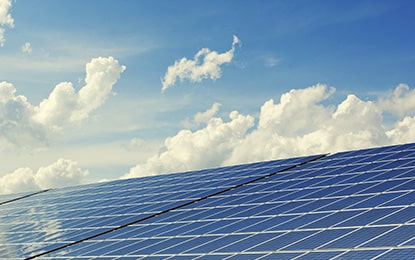What is the Solar Payback Period?
Aug 17, 2022
Solar energy is a growing industry, and it’s growing quickly. Every day many households are deciding to take their home’s energy into their own hands by installing solar panels onto their home. When considering solar for your home, there are quite a few factors that are important to think about. One of these is the solar payback period.
What is the Solar Payback Period?
The solar payback period is the length of time it takes for a solar system to generate enough energy to offset its initial cost. In other words, it’s the amount of time it takes for a solar PV system to “pay for itself.”
There are several factors that go into determining a photovoltaic system’s payback period, including the system’s size, cost, and location. The average payback period for a solar panel system in the U.S. is between 6 and 10 years.
The solar payback period is an important consideration for anyone thinking about installing a solar PV system. A shorter payback period means that the system will start saving you money sooner. And a longer payback period means that the system will take longer to start saving you money.
What is the Average Solar Payback Period in the United States?
The average solar payback period in the United States is about 6-10 years. However, this number can vary significantly depending on a number of factors, including the cost of the system, the amount of sunlight that the system receives, and the electricity rates in your area.
For example, if you live in an area with high electricity rates, your payback period may be shorter because you’ll save more money on your energy bills. Or, if you have a large solar PV system, your payback period may be longer, because the initial cost of the system will be higher.
Payback periods can also vary depending on the type of solar PV system that you install. For example, payback periods for ground-mounted systems are typically shorter than payback periods for rooftop systems.
What can Impact the Solar Payback Period?
There are a number of things that can impact the solar payback period. The most important of these is the cost of the system. Other important factors include the amount of sunlight that the system receives, the electricity rates in your area, and the type of solar PV system that you install.
There are several ways to shorten a solar PV system’s payback period, including:
- Increasing the system’s size: A larger system will generate more electricity and offset its initial cost faster.
- Installing the system in a sunny location: Solar PV systems generate more electricity in sunny locations than in shady or cloudy ones.
- Choosing a less expensive system: A cheaper system will have a shorter payback period than a more expensive one.
- Taking advantage of solar incentives: Some states offer solar incentives that can shorten a system’s payback period.
Why is the Solar Payback Period so important?
The solar payback period is important because it determines how long it will take for a solar PV system to generate enough energy to offset its initial cost. In other words, it’s the amount of time it takes for a solar PV system to “pay for itself.”
The payback period is an important consideration for anyone considering solar power. A shorter payback period may be more important to you if you’re looking to save money on your energy bills. Or, if you’re interested in reducing your environmental impact, a longer payback period may be worth the investment.
No matter what your reasons are for considering solar power, it’s important to understand the solar payback period and how it may impact your decision. By doing your research, you can make an informed choice about whether or not solar is right for you.
Call a Professional
The solar payback period is an important factor to consider when deciding whether or not to install a solar PV system. However, it’s not the only factor that you should take into account. Other important considerations include the cost of the system, the amount of sunlight that the system receives, and the electricity rates in your area. By doing your research and taking all of these factors into account, you can make an informed decision about whether or not solar power is right for you.
If you’re interested in a no-pressure educational conversation about solar energy or installing solar panels on your building or home, then contact Honey Bees Roofing & Solar online or give us a call today at 817-668-6131! We offer free roofing inspections so we can help you choose the best roofing option for your home as well. In addition, we can work on any roof and help you determine what may need to be repaired. If you need a free roof inspection, don’t hesitate to contact us!
